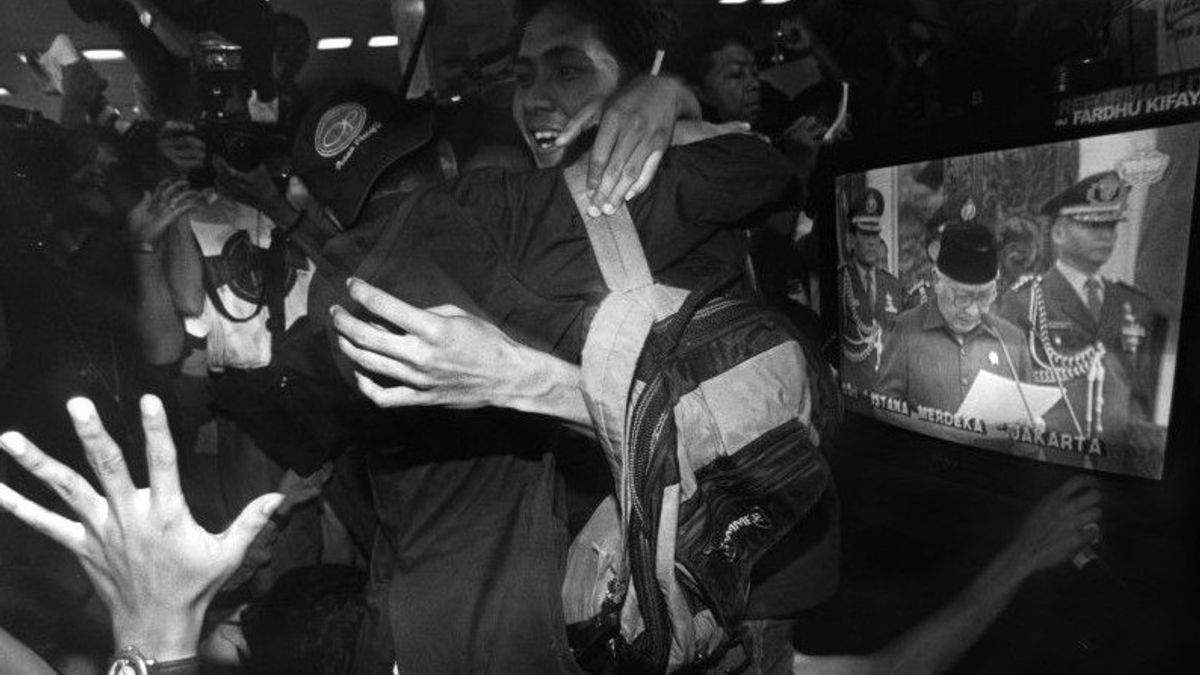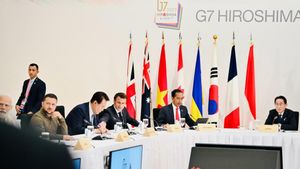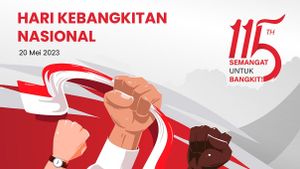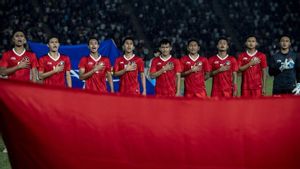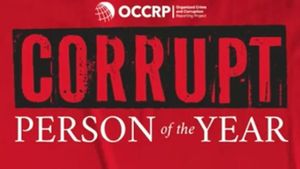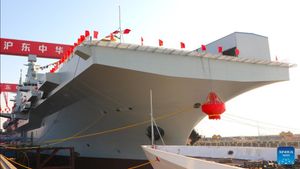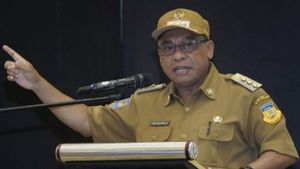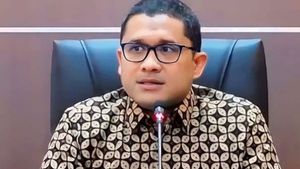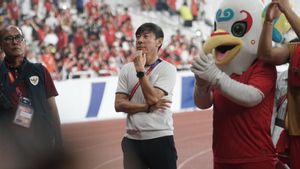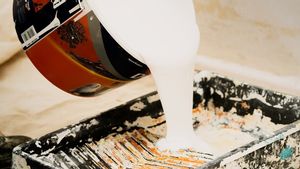JAKARTA The mass riots that occurred simultaneously on May 13-15, 1998 left the condition of Jakarta and a number of buffer areas in the capital completely paralyzed. The people acted anarchically. Shopping centers burned down, looting occurred everywhere, and it was even known to target people's homes.
President Suharto, who was on a state visit to Cairo, Egypt rushed back to the country on May 15, 1998 and finally decided to step down from his position as President one week later.
"By paying attention to the provisions of Article 8 of the 1945 Constitution and after seriously paying attention to the views of the leadership of the House of Representatives and the leaders of the factions in it, I have decided to declare my resignation from my position as President of the Republic of Indonesia, starting since I read this statement today, Thursday, May 21, 1998," Suharto said in his speech.
Protesters who have occupied the DPR/MPR building since May 18, 1998 are delighted. The announcement marked the collapse of the New Order power and the starting point of the reform era.
If reforms only overthrow President Suharto, that goal has been achieved. However, the reform agenda is not limited to overthrowing power.
There are at least 6 points that are always echoed. First try Suharto and his crafts. Second, amendments to the 1945 Constitution. Third, abolish ABRI's dyafunction. Fourth, eradicating corruption, collusion, and nepotism. Fifth, regional autonomy as wide as possible. Sixth, upholding the rule of law.
Now, 25 years have passed. Has the reform agenda in 1998 been fully achieved?
Subhan SSD in his book The Dead Nation in the Hands of Politicians considered only to remove ABRI's dyafunction which became the most positive record.
In the New Order era, ABRI was the most terrible machine. Even though it was born from the people's womb, ABRI often pointed a gunnose at the people. The role of ABRI is very dominant. In fact, it controls the political stage. Fills structural positions from regents, mayors, to governors.
However, once reformed, the army managed to return to the barracks, taking care of defense. The TNI is arguably the most successful institution to carry out reforms.
Meanwhile, other agendas have not gone completely well. For example, amendments to the 1945 Constitution. So far, amendments to the 1945 Constitution have been made four times.
However, said Subhan, was the amendment in accordance with the demands of reforms aimed at perfecting the basic rules regarding state order, people's sovereignty, protection of human rights, patterns of power division, social welfare, and the existence of democratic countries?
"The amendments must be placed in the interests of the people, nation and state, not political interests," said Subhan.
اقرأ أيضا:
Indeed, said Prof. Dr. Subroto, there are a number of changes that are perfect in the amendments to the 1945 Constitution, but there are also several changes that fundamentally cause the nation to fall into an ideological crisis, chaos in the political system and state administration, and the wrong direction in economic operations.
"Showing that we no longer side with the values that are upheld on the basis of the Pancasila state, but rather lead to glorifying the values of individualism. Contrary to the spirit of togetherness and social justice," said Subroto as written in his book 'Indonesia is in Your Hands'.
Then, the regional autonomy agenda. Autonomy has brought regions to have independent decisions. It is no longer regulated by the central government. However, ironically, autonomy passes through paradoxical roads. Autonomy is used as a political commodity, not a regional interest. Regional exchanges and regional elections, for example, are increasingly trapped in identity politics and the emergence of local egos. Stay away from the character of the unitary state.
Likewise, eradicating corruption, collusion, and nepotism as well as the agenda of upholding the rule of law. During the 25 years of reform, corruptors have become increasingly rampant. Diversity from the center of power to small kings in the area.
Coordinating Minister for Political, Legal and Security Affairs Mahfud MD only stated that the current corruption was much worse than during the New Order era. Although the New Order era was full of corruption, collusion, and nepotism, its shape was more coordinated.
"You remember not before, there was no corruption committed by the DPR, judges did not dare to corrupt, governors, local governments, regents did not dare," said Mahfud.
In the reform era, corruption is carried out individually and is increasingly widespread.
"The DPR is corruption itself, the Supreme Court is corruption itself, the Constitutional Court judges corruption, regional heads, the DPRD is all corruption individually," he added.
Instead of providing a deterrent effect, corruption action is still very weak. The average sentence for perpetrators in 2021, based on ICW data, is only 3 years and 5 months in prison. Not to mention with a number of remission decisions or conditional release decisions, which means that prisoners are free after serving at least two-thirds of their criminal period, provided that the two-thirds are no less than 9 (nine) months.
"Don't expect corruption to be eradicated if the law is not really fair and there is no unity," said Subhan.
This means that reforms have not been completely implemented. Oritarianism was indeed contributed, but reforms failed to build a substantive democracy. Democracy is echoed not for political civilization. Democracy is only used as a vehicle to fight for power, not for empowering and prospering the people.
Five presidents have been in power since the reform era, but the problems of this country have not changed. In fact, it is even more worrying.
Noise politics, shaky economy, law as if it were fair, corruption failed to be eradicated, morality is worrying, the nation has no character, and much more. That's a portrait of the current generation," added Subhan.
The English, Chinese, Japanese, Arabic, and French versions are automatically generated by the AI. So there may still be inaccuracies in translating, please always see Indonesian as our main language. (system supported by DigitalSiber.id)
